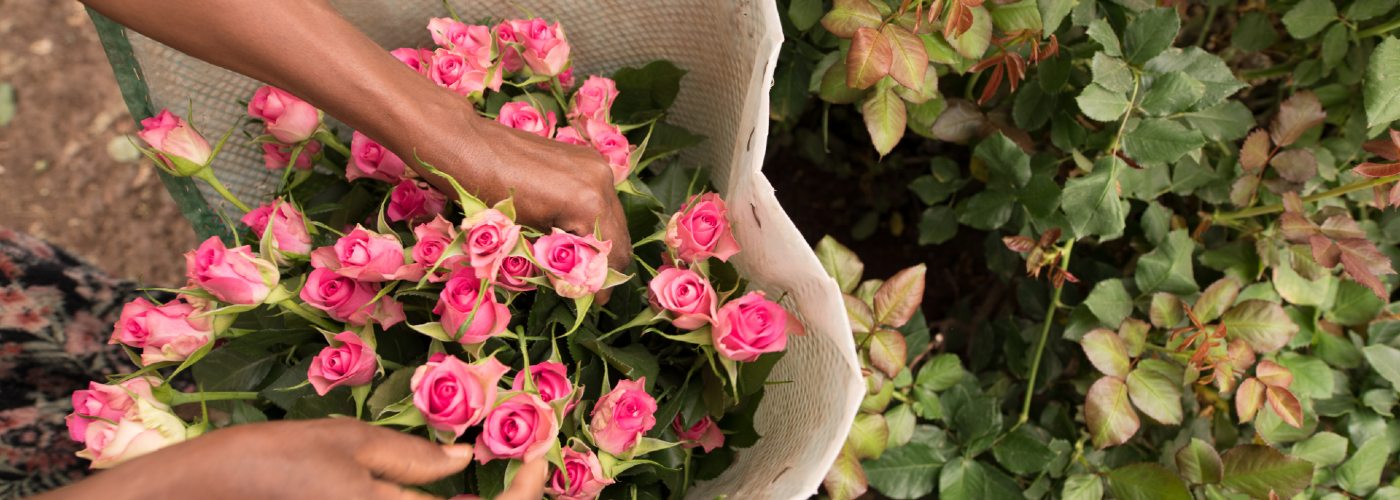Civil Society Organisations under Hivos East Africa’s Women@Work Campaign and the Kenya Flower Council (KFC) today dispatched food packages and mobile money transfers worth approximately 75,000 euros (equivalent to KES 8 Million) to workers in selected flower farms.
A total of 7,000 workers in the flower sector are set to receive the rations as a relief measure due to disruption of income as a result of COVID-19 pandemic. Hundreds of permanent workers were sent home on paid and unpaid leave during the month of March and April, while seasonal workers have been rendered jobless. Although most flower farms, in recent weeks, have recalled their workers as exports to various markets continue to pick up, many are still at home and unemployed. The flower sub-sector employs over 200, 000 workers employed directly on the farms across the country.
“We have been implementing projects with the flower farms under our Women@Work programme – which advocates for good working conditions for workers in horticulture. It is only prudent for us to extend some support to the workers in this extraordinary period,” said Hivos East Africa’s Regional Director, Mendi Njonjo.
A study by Hivos East Africa on the effects of Corona Virus on women working in horticulture showed that majority of workers were struggling to buy food and worried about loss of income. Even as COVID-19 effects continue to ravage, Hivos believes that it’s important to include human rights, such as protection of the vulnerable and respect of human dignity to not only curtail the spread of the virus but also cushion and safeguard women workers who stand to be the most affected by the pandemic.
“The flower industry is also one of the largest employers in the Kenya. The industry has an immerse pool of highly skilled labour” says Clement Tulezi, Chief Executive Officer, Kenya Flower Council. “Workers are the backbone of the flower industry. KFC is delighted that this a simple gesture to demonstrate how much workers are valued and their contribution appreciated.”
The Agriculture and Food Authority reported that Kenya’s earnings from horticulture exports, including flowers, fruits and vegetable, fell 7 percent in 2019 to Sh142.72 from Sh154.7 billion in 2018, mainly due to lower prices of flowers at the auction in the Netherlands. The flower sector is expected to bounce back once restrictions around the globe on COVID-19 are lifted.
For more information, please contact:
Caroline Wahome: cwahome@hivos.org
About the initiative
The COVID-19 response to flower farmer workers was established by civil society organisations under the Women@Work Campaign: Hivos East Africa, Haki Mashinani, Kenya Human Rights Commission, Ufadhili Trust and African Women’s Development and Communication Network (FEMNET) to contribute to ongoing relief efforts aimed at cushioning them from the aftershocks of the pandemic. Please see assessment findings: Impact of COVID-19 on Women Workers in the Horticulture Sector in Kenya




